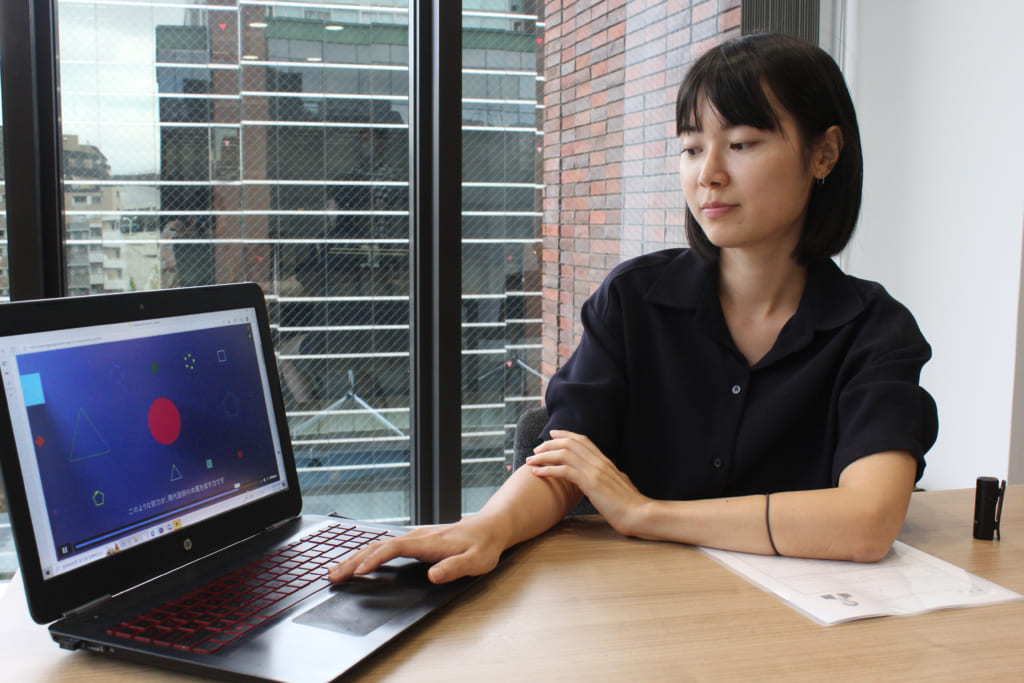Student Interview with Jun Daeun
- Home
- School Life
- Student Interview
- Student Interview with Jun Daeun
Jun Daeun
From Korea
Harajuku Campus
Job offer from Super Studio Inc.
(Designer position)
- Why did you decide to study in Japan?
- I also considered other countries, but I think one of the main reasons that led me to become a designer was my love of Japanese culture and the influence it had on me. I have always loved Japanese manga, reading them and drawing my own pictures, which eventually led me to enroll in an art college. I also chose Japan because it is close to Korea, so it is relatively easy to come and go, and the food is familiar to me, making it an easy country for me to adapt to.
- Why did you choose to study at Harajuku Campus?
- My number one priority was, "Are there business classes?" I had heard that other Japanese language schools also offer business classes, but only once a week. Compared to that, the Harajuku Campus offers business classes as well as interview practice and resume correction outside of class, so I chose the Harajuku Campus.
At other schools, students mainly study JLPT and Kanji, which they can do in their own countries, and I wondered if I should come to Japan to do only those things. Also, at other schools, there is a charge for resume correction. At the Harajuku Campus, the teachers are very proactive and offer a lot of support, which I think is very attractive. - What was the best part of attending Harajuku Campus or what was memorable about the classes?
- One of the special classes is the "Future Classroom". This is a class held every semester in which students discuss and prepare materials on a given theme and make a presentation in front of everyone. Since the theme changes and the students work in teams, they are able to talk and interact with many of their classmates, which I think was really beneficial.
- Did you work hard with your teachers and classmates during your job search?
- One thing I worked hard on with my teacher was correcting my resume. In my case, I was hoping for a designer position, so I had a portfolio, and the teacher corrected everything related to that as well. I myself was hired before the school's interview practice began in earnest, but I think the school is very useful for students who are going to practice and prepare for interviews.
- What are your goals and dreams for the future?
- It has always been a dream of mine to live in a foreign country. In that sense, I believe that this time that dream has come true to some extent.
As a designer, I was able to get a lot of inspiration from Japanese design while I was job hunting and researching companies. From now on, I would like to acquire excellent Japanese design. - Please give a message to students who are thinking of coming to Japan for the same purpose as you.
- I think you should summarize your past achievements in your resume in advance and practice keigo (honorific speech) and other expressions.
Before I came to Japan, I thought that Japanese companies were conservative and strict in many aspects, but I found that this was not the case. For example, at the company where I failed an interview in the past, I was dressed neatly, but at the company that hired me this time, I was wearing a black blouse, which is what I usually wear, and both the interviewer and I felt relaxed.
Let us all challenge Japanese companies without fear! Even if you can't use keigo to the same extent, the interviewer understands that you are a foreigner, so I think it's a good idea to not be too nervous.
[Jun Daeun and her own design]


